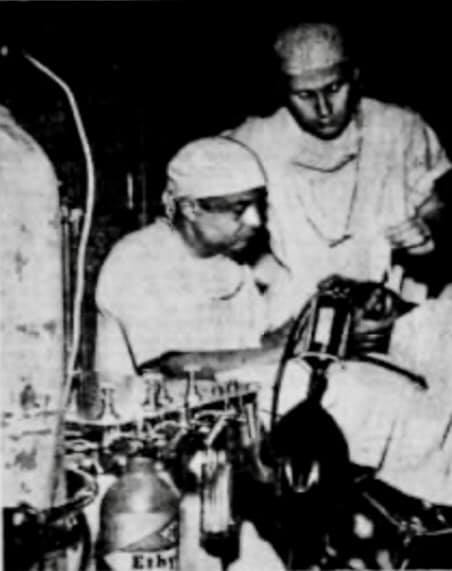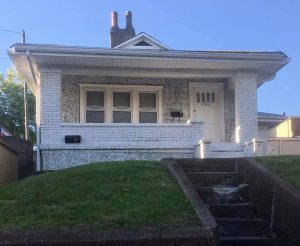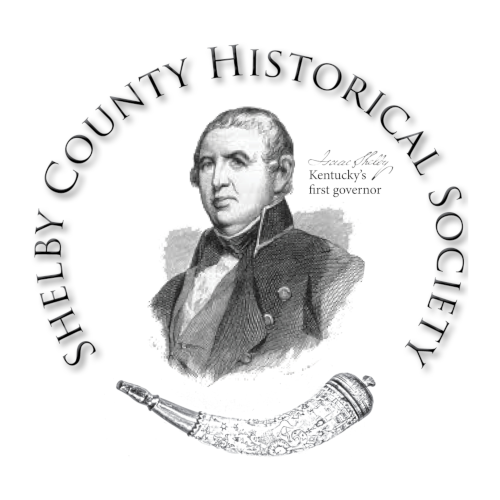

Dr. Maurice Rabb, Sr.

There is a charming bungalow-style house that sits at 413 Henry Clay Street, with a privately maintained historical marker on the front lawn. It was the home and medical clinic of Dr. Maurice Rabb, Sr.
Growing up in Columbus, Mississippi, Rabb had always known he wanted to be a doctor. However, his father was once told by a school board member that schooling for African Americans ended at the 10th grade as, “That’s all they need.” Dr. Rabb’s father was determined to educate his six sons, so he moved the family to Nashville, Tennessee, where Dr. Rabb not only graduated high school, but went on to complete his undergraduate studies at Fisk University, and he received his M.D. from Meharry Medical School.
By then, his father owned a grocery store and Maurice helped pay for medical school by waiting tables on Pullman cars during the summer. After his internship at Kansas City General Hospital, Dr. Rabb moved to Shelbyville, where he practiced in his house on Henry Clay Street from 1930 to 1946. For many years, he was our only black physician. He was also the school physician for the Lincoln Institute.
While on the staff of the Red Cross hospital in Louisville, Dr. Rabb was called upon to give anesthesia. Unfortunately, the hospital had no formally trained black Anesthesiologists, so he started reading, asking questions, and making friends. In 1948, Dr. Rabb was the first African American to train at General Hospital (now UofL Hospital) in Louisville. In 1953, he became the first African American to join the Jefferson County Medical Society, and the first black physician to practice anesthesiology in Louisville.
Governor Simeon Willis appointed Dr. Rabb to the Commission on Negro Affairs in the 1960’s, where he headed a state committee on health. During this time, Dr. Rabb became a Leader for Civil Rights in Louisville. He helped push through ordinances to integrate restaurants, theaters, housing, and jobs. He served on the National Board of Directors of the NAACP for twelve years.
Dr. Rabb worked tirelessly until his late seventies. In his retirement, he held a passion for growing prize roses in his garden. He passed away in 1982 at the age of 80.
